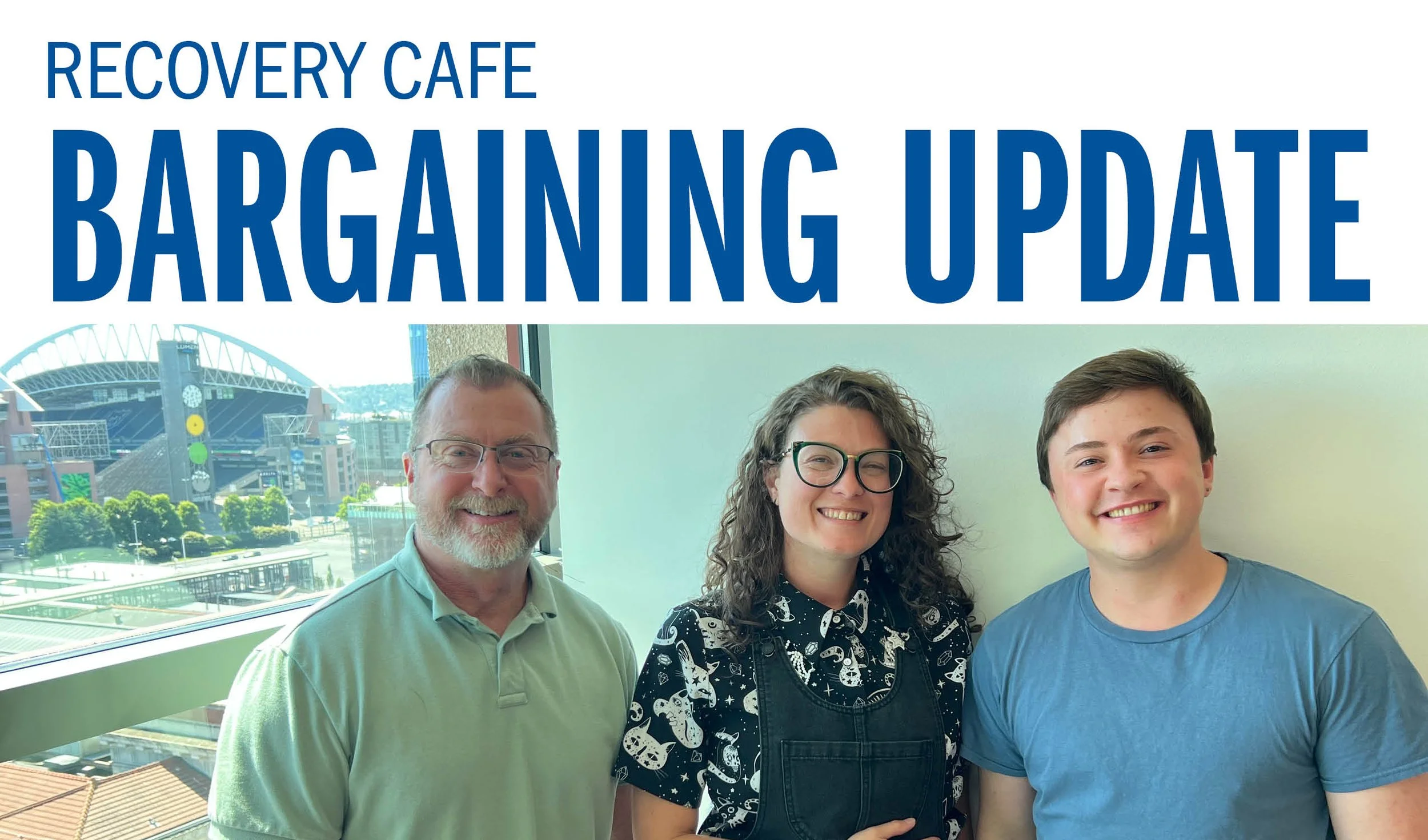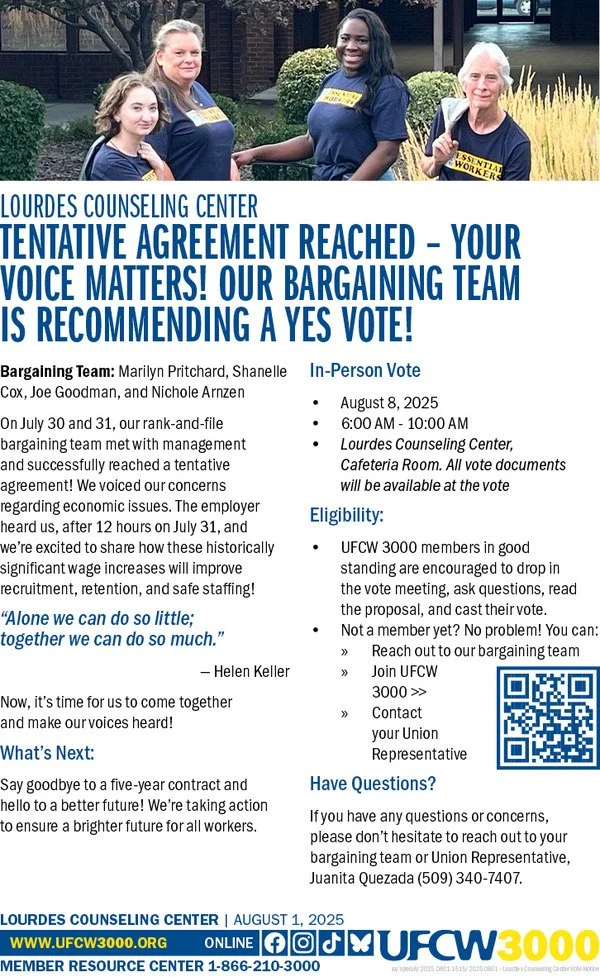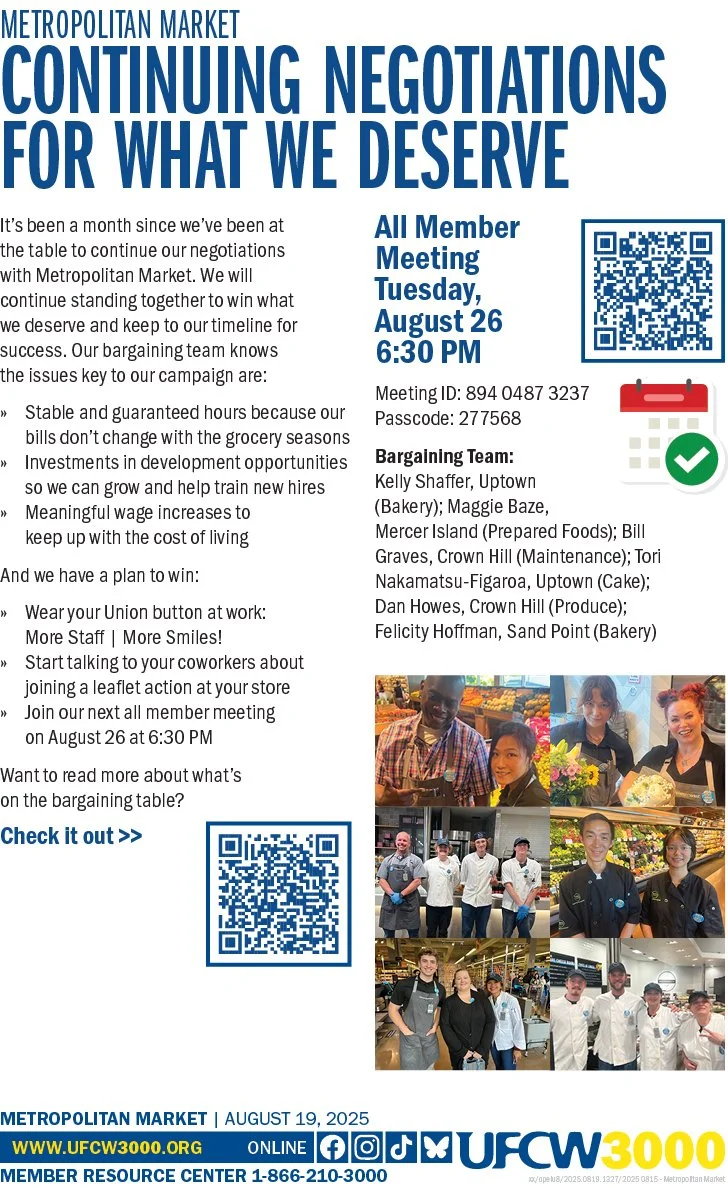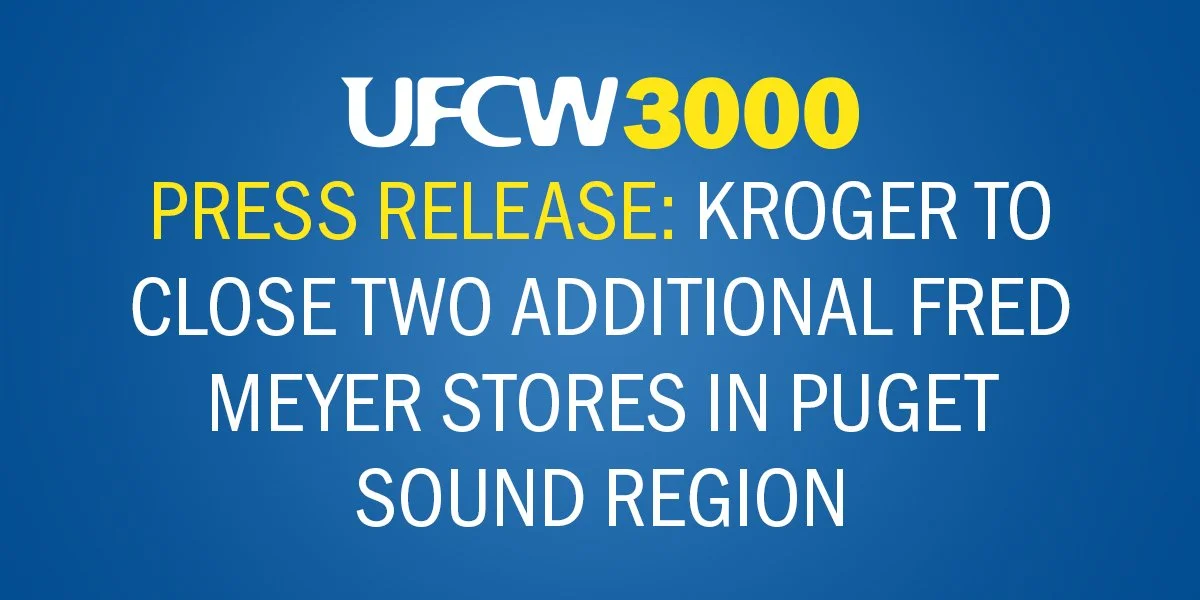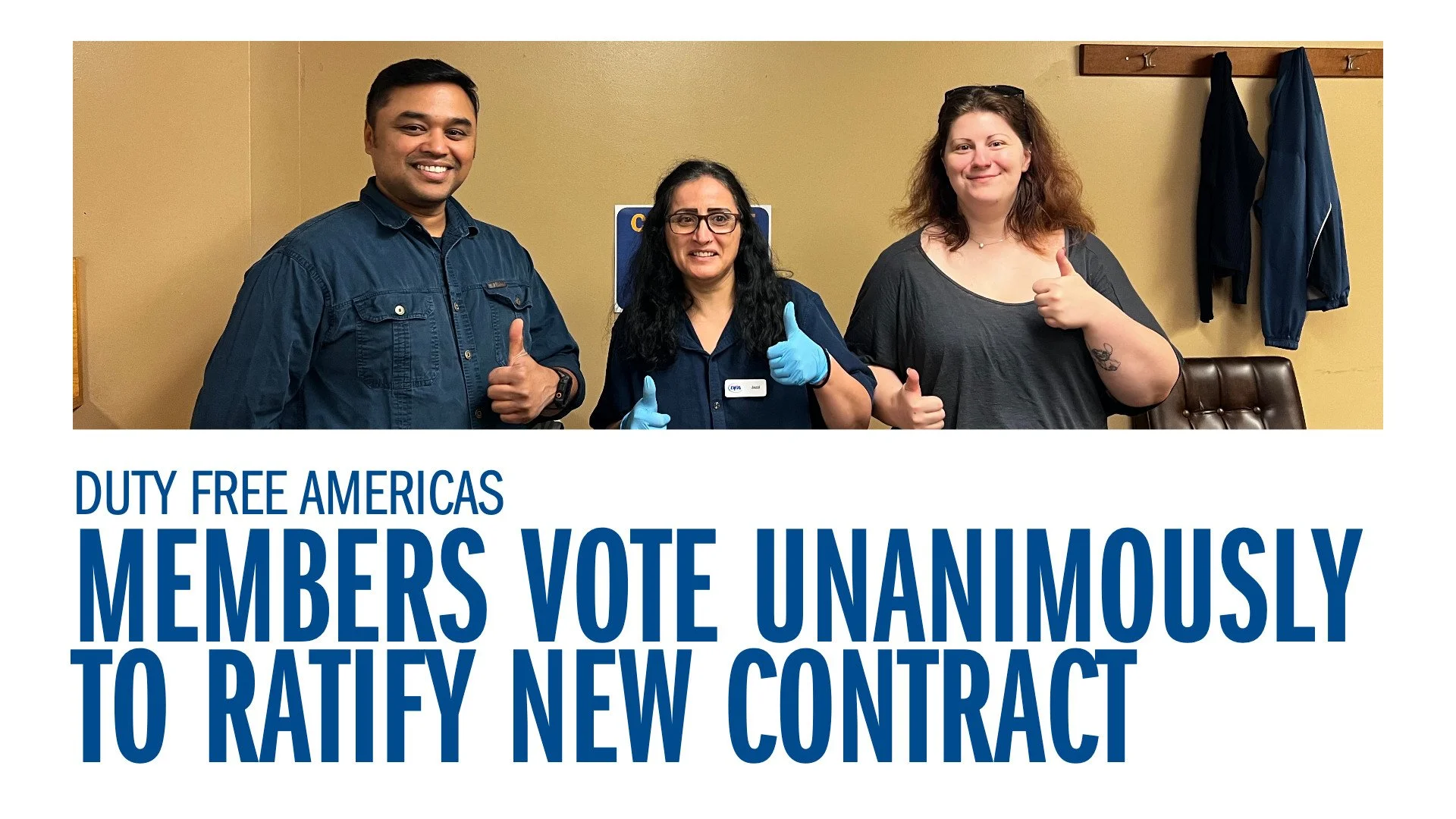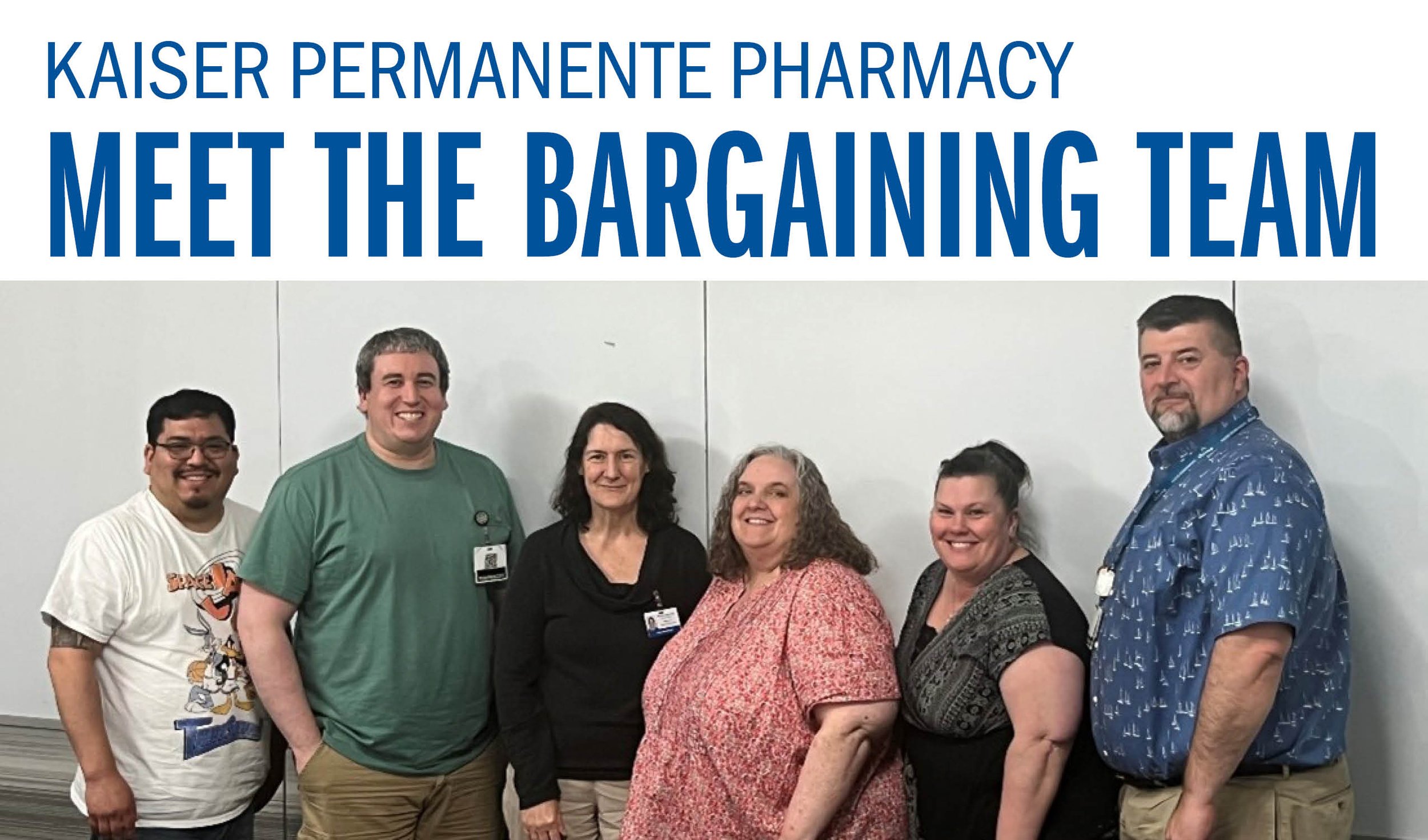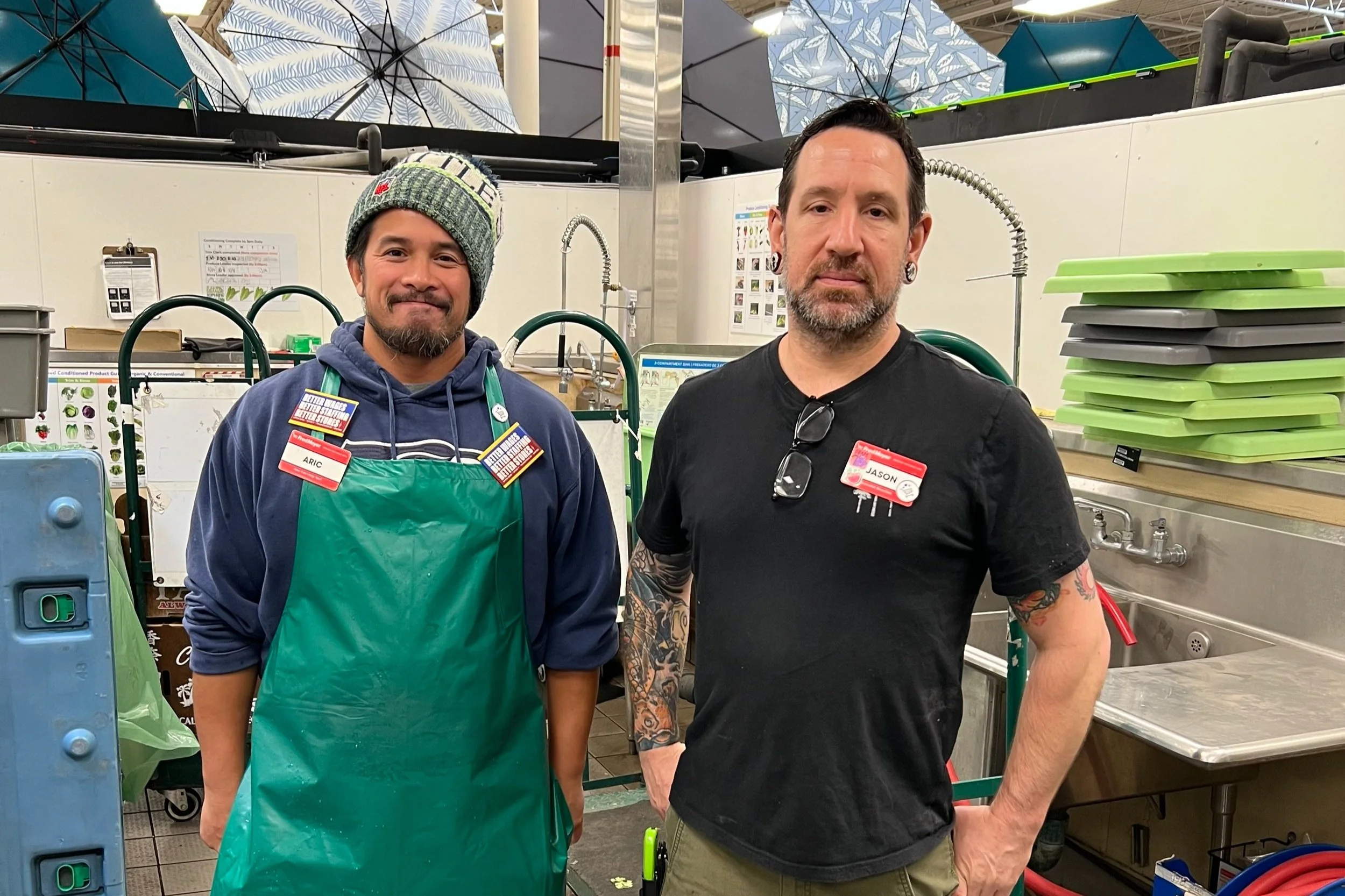*** FOR IMMEDIATE RELEASE ***
August 19, 2025
Kroger to Close Two Additional Fred Meyer Stores in Puget Sound Region
Contact: Rich Smith, UFCW 3000 Communications Director
rsmith@ufcw3000.org / 816-289-4520
No, this is not the same press release our union issued yesterday.
Kroger, the Ohio-based corporation that owns QFC and Fred Meyer, plans permanently to close two additional Fred Meyer stores in the Puget Sound region on October 17 and 18, affecting 343 workers.
The stores currently serve Lake City (13000 Lake City Way NE; 175 workers affected) and Redmond (17667 NE 76th St; 168 workers affected).
The company claims that those facilities represent some of the region’s lowest performers in terms of sales.
Today's announcement comes one day after the corporation announced plans to close Fred Meyer locations in Kent and Everett. All told, the closure of these four stores affects 703 workers.
In July, the company also announced plans to close a Tacoma Fred Meyer and the Mill Creek QFC. The announcement today raises the number of Kroger-store closures in our region to six.
We will sit down with the company to bargain over these changes in the coming days.
Our union contracts stipulate that Kroger must offer workers placement in equivalent positions at nearby stores, in accordance with their union seniority.
These closures apparently align with Kroger’s plan to shutter stores in low-sales areas and open stores in potentially high-sales areas, with new Kroger stores scheduled to open in 2026.
This strategy raises serious concerns about food access for working class communities. Three out of the four stores Kroger plans to close are located in zip codes with incomes that rank below their respective county’s household median income.
“In this era of mass consolidation, many of the workers we represent have come to expect this kind of callous, out-of-touch corporate management style from Kroger, but staggering store closure announcements that impact hundreds of workers and thousands of our neighbors over the course of two days is really something else,” said Faye Guenther, UFCW 3000 President.
She added: “Kroger’s closures put profit over people, plain and simple. This corporate strategy might please Wall Street investors, but we know it’ll create food deserts in our neighborhoods and disrupt the lives of hundreds of workers already displaced by a housing affordability crisis now ten years in the making. Without a doubt, these issues will lead our agenda when we return to the table with Kroger and Albertsons in 2027. In the meantime, our union strongly encourages elected leaders to prioritize policies that increase access to fresh, affordable food for all.”
In response to statements from Kroger attributing closures to crime, Bryan Gilderoy, a produce clerk who has worked at the Fred Meyer in Kent for 15 years, said: “From what I can tell in the store, crime has calmed down since COVID. Kroger added security after we demanded it, and things have gotten way better. As a matter of fact, a regular customer came in just yesterday and told me she comes to this store because she feels safest here.”
Washington State Governor Bob Ferguson said, “My office is watching this closely. The closure of six grocery stores in the Puget Sound region creates a lot of uncertainty for the workers and communities who depend on these stores to feed their families. In the coming months, we will be talking to workers and communities about their needs and build on the work we've been doing to make housing and food more affordable in Washington.”
Seattle Congresswoman Pramila Jayapal said, “Food deserts aren’t a natural phenomenon—giant grocery store corporations create them when they put their bottom lines over the health and well-being of our communities and workers. Closing stores will put people out of work and make it harder for families to put food on the table – all for the benefit of corporate shareholders and even as CEOs take home millions in pay every single year. I founded the Monopoly Buster’s Caucus in Congress to fight back against this exact kind of treatment of working-class people – consumers and workers – and we’ll be fighting to ensure that everyone has access to quality, affordable food.”
Background
On a June 20, 2025 earnings call, Kroger Interim CEO Ronald Sargent explained the context of the closures this way: “Unfortunately, today, not all of our stores are delivering the sustainable results we need. It's also important to note we paused our annual store review during the merger process ... We usually evaluate individual store performance on an annual basis, and we continue to do that, but we deferred closing any stores due to the merger process.”
Between 2022 and 2024, Kroger spent more than $1 billion in an attempt to merge with Albertsons, which owns Safeway and Haggen, among other banners.
After UFCW 3000 grocery store workers launched a campaign to stop that merger, judges blocked the $25 billion deal in December of 2024. That same month, Kroger announced $7.5 billion in stock buybacks.
Following the failed merger, C&S Wholesalers sued Kroger, claiming Kroger owed the company $125 million. Kroger settled that suit last week on August 11, 2025.
In 2024, Kroger saw a 77% higher net income and 63% higher operating income than they did in 2019, according to company filings (London Stock Exchange Group).
After authorizing a strike in June of 2025, this July grocery store workers in the Puget Sound region ratified a new contract that won first-in-the-nation language to address staffing issues, secured our union healthcare and pensions, and gained some of the largest average annual wage increases we have seen.
UFCW 3000 is the largest private-sector union in Washington State, representing more than 55,000 workers in grocery, healthcare, cannabis, retail, food packing and processing, and textiles and laundry, among other industries. We represent nearly 30,000 grocery workers in Washington, eastern Oregon, and north Idaho.
























